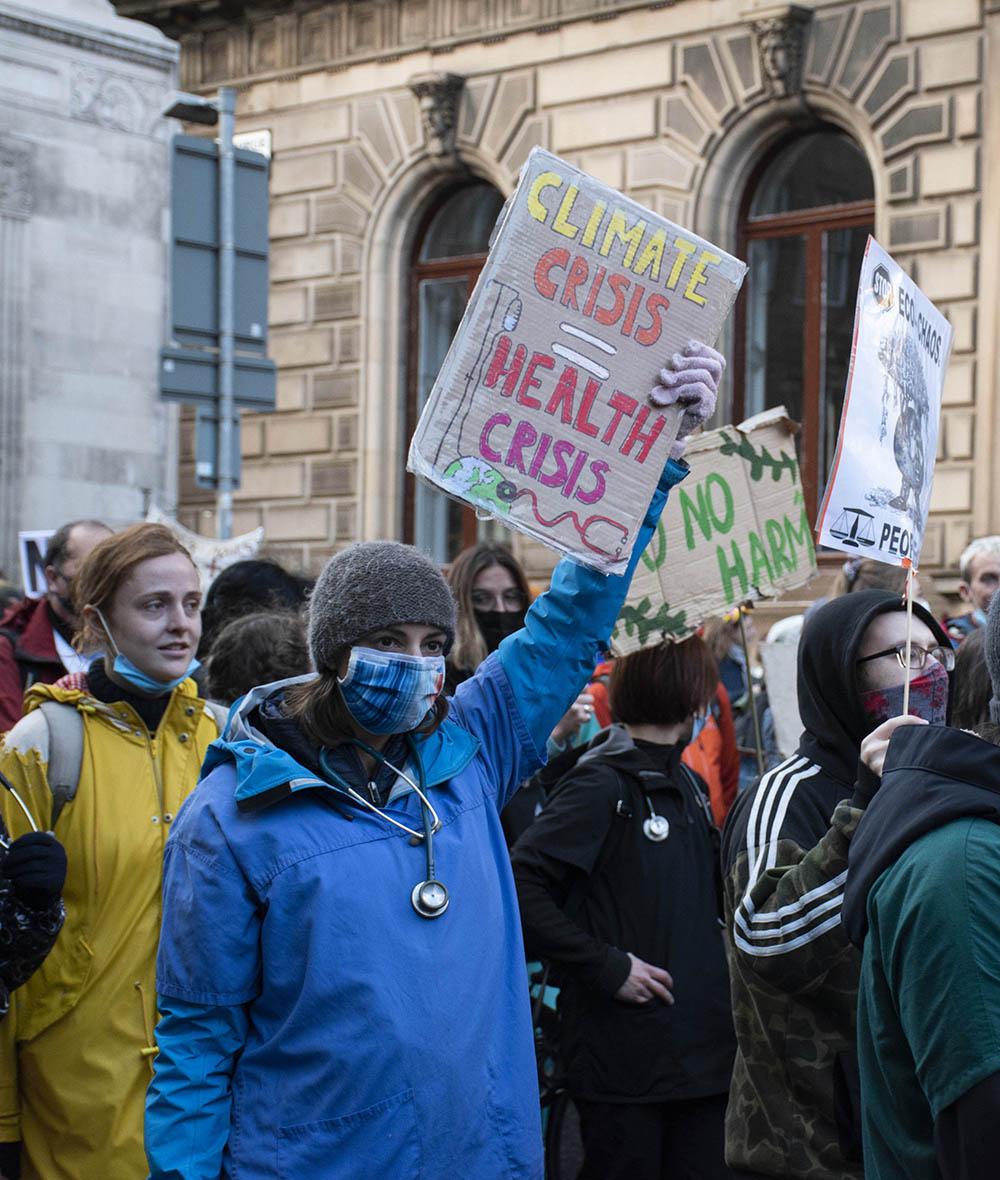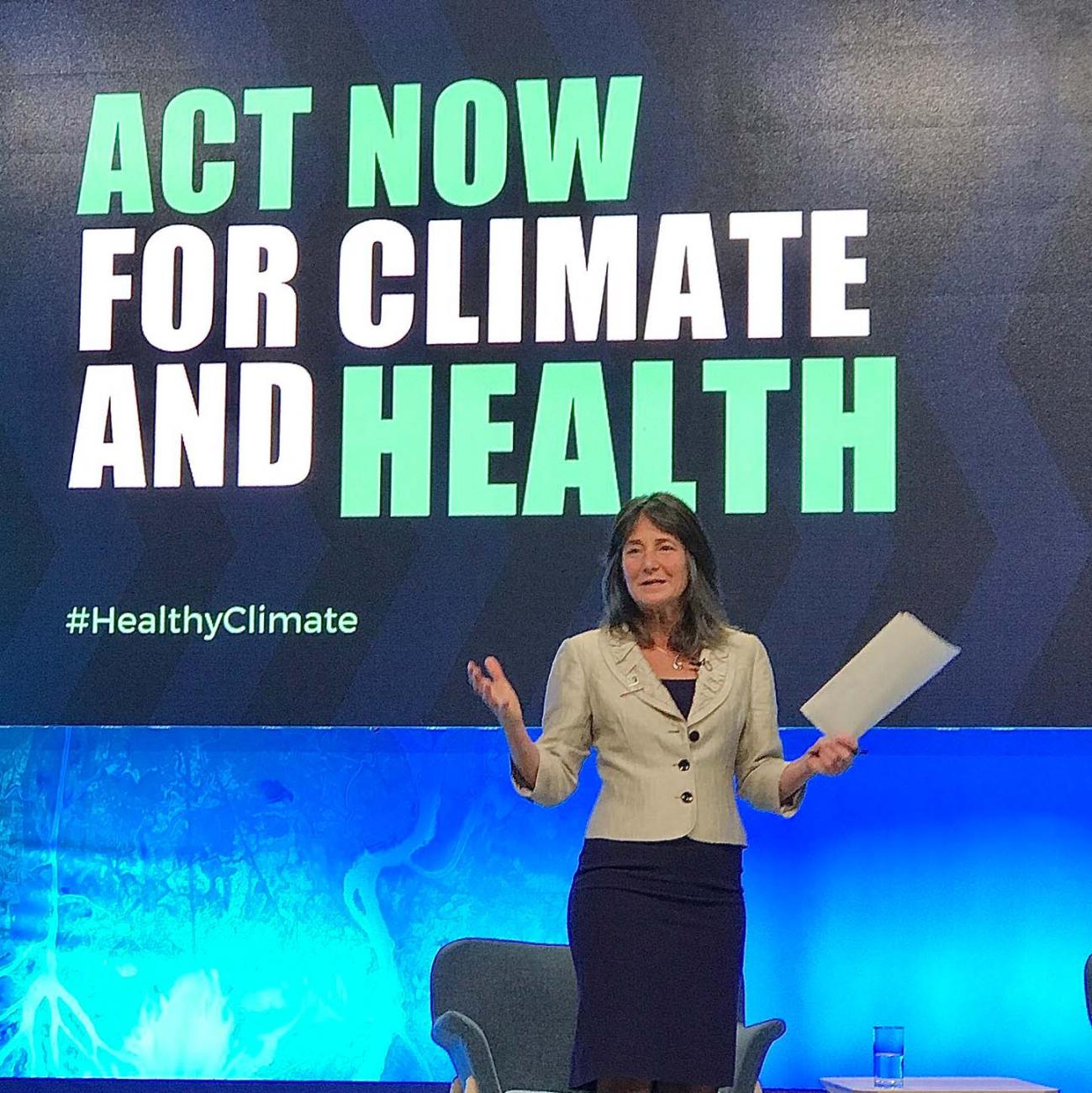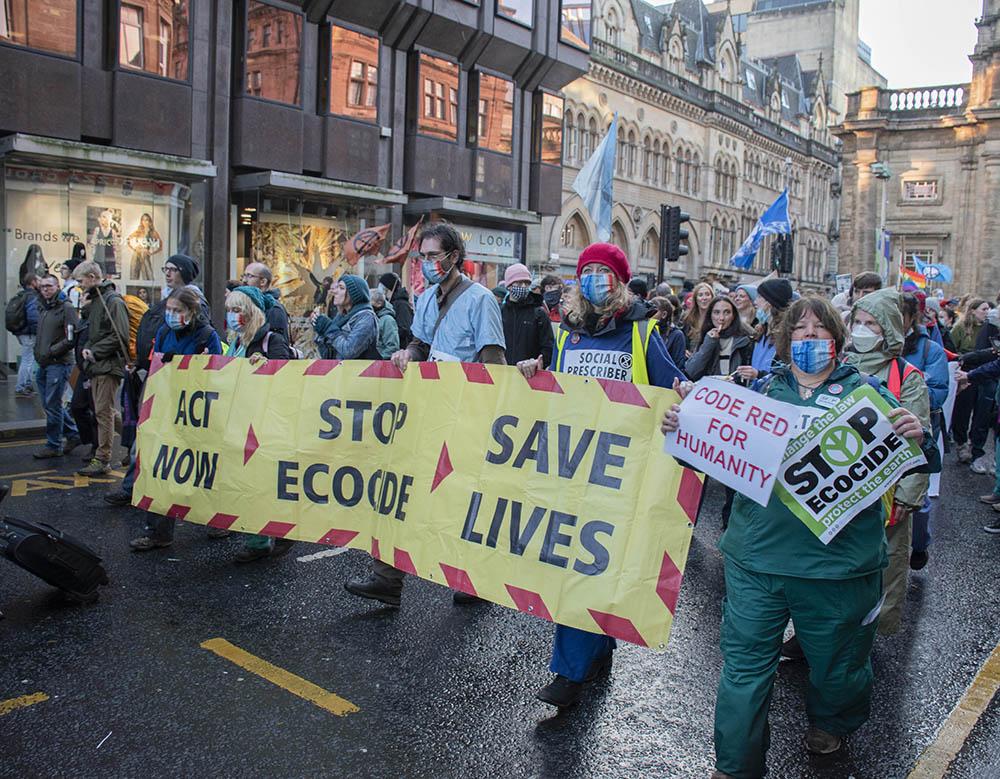
A blog post by Helena Uhl, Communications Officer
Climate-smart Healthcare - HCWH Europe
Though there was disappointment with the final deal negotiated at COP26 in Glasgow and the watered-down language on fossil fuels - there is no question that this was an unprecedented climate COP for health.

Healthcare is not only on the frontlines of the climate crisis. It is also responsible for 4.4% of net global greenhouse gas emissions. If the healthcare sector was a country, it would be the fifth-largest emitter on the planet. These country commitments are therefore crucial to a zero carbon future.
Committing to climate-resilient and low-carbon health systems
Healthcare is not only on the frontlines of the climate crisis. It is also responsible for 4.4% of net global greenhouse gas emissions.
Marking themselves as climate-smart healthcare leaders, seven European countries announced their commitments under the COP26 Health Programme, joining more than 50 countries worldwide in committing to develop climate-resilient and low-carbon health systems. In total, these 51 countries account for more than a third of global healthcare emissions, (the European countries represent almost 60% of all healthcare emissions across the European Union and the United Kingdom).
“In making these national commitments, these countries are acknowledging the impacts of climate change on health and health systems, as well as the role the healthcare sector can play in addressing the climate crisis. We now need to see these commitments reinforced with supporting policies and resources. The science is clear; the case has been made. Now is the time for action.”
- Will Clark, Executive Director - HCWH Europe
Healthcare recognising its impact

During the session, Nick Watts, Chief Sustainability Officer of NHS England, said: “At the international level, the NHS is the world’s first national healthcare system to make a net-zero commitment, net-zero by 2040 for the emissions we control directly, 2045 for all of our emissions. We are the first ones to do that. I promise you. We will not be the last.”
At the 2021 Global Conference on Health and Climate Change, a COP26 side event organised by the WHO and the Global Climate and Health Alliance (GCHA), speakers called on governments, businesses, institutions and financial actors to “drive a green, healthy and resilient recovery from COVID-19.” We also witnessed the United States formally join the COP26 Health Programme, committing to sustainable, low-carbon, resilient health systems.
A strong representation from both youth and women sent a strong message, as climate change disproportionately impacts women and young people. Mary Robinson, former President of Ireland and UN High Commissioner for Human Rights stressed that a healthy environment is an undeniable human right. While Mohamed Eissa from the International Federation of Medical Students shared what medical students are already doing to combat the climate crisis and his hopes for a COP27 that is more inclusive with health at the top of the agenda.
Health professionals calling for urgent action
Throughout COP26 and during the Global Day of Action, health professionals came together to call for the recognition of the climate crisis as a health crisis and demand immediate action to combat climate change. Joining tens of thousands of people, health professionals marched through Glasgow.

“Every day should be a health day at COP”, concluded Josh Karliner, HCWH Global’s International Director of Program and Strategy, at the New York Times Climate Hub event Future Proof: Health Systems for a Healthy Planet. The fact that it’s not is a poignant reminder that although COP26 featured health more than ever before, more action is needed in the sector and beyond.
Health Care Without Harm Europe supports health professionals to advocate for climate action via its Nurses Climate Challenge Europe and Doctors for Greener Healthcare networks.